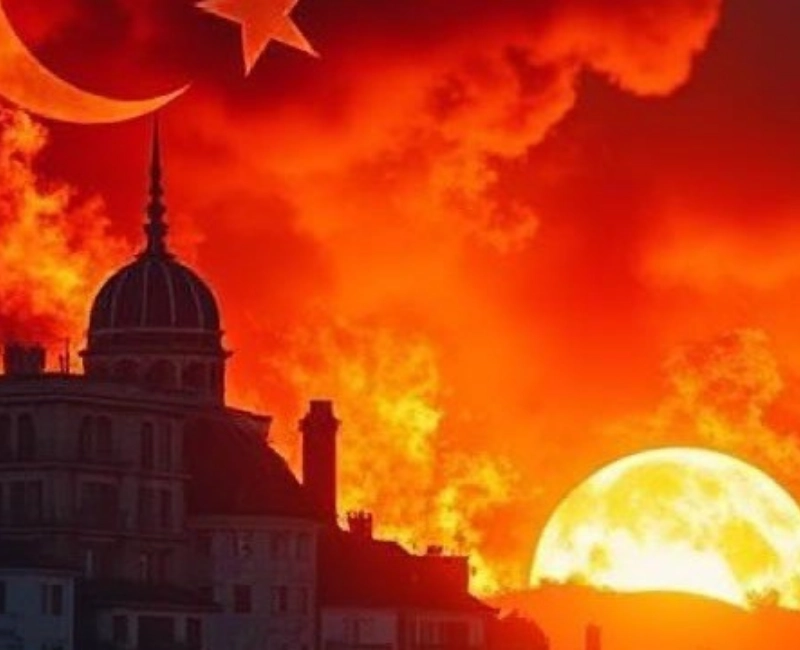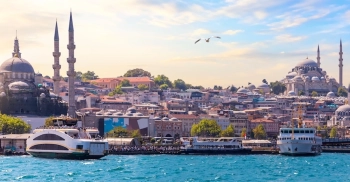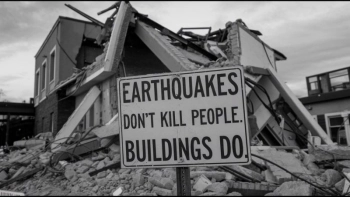The Middle East is once again under geopolitical strain, this time with global implications. The recent happenings between Israel and Iran, marked by the June 13 Israeli airstrikes on Tehran and Iran’s drone shooting, have occurred with immediate regional instability. While world leaders scramble for de-escalation, the war's ripple effects are already being felt in unexpected places, including Turkey’s real estate market.
Turkey, which is always the regional bridge between Europe and the Middle East, finds itself navigating economic pressures, shifts in foreign investment, and demographic movements. I believe it is very crucial to understand these forces, not just as headlines, but as factors influencing to make property decisions.
Let us see how the occurring Israel and Iran conflict is influencing real estate dynamics in Türkiye:
1. Increasing Energy Prices: Fueling Inflation in Construction
Within hours of the first strike, global oil prices increased nearly 10%. For a country like Turkey, which imports over 90% of its energy needs, this surge is more than a market blip and it’s a direct inflation trigger for the Turkish economy.
Rising fuel prices are quickly making everything more expensive, starting from construction materials and transportation to everyday utilities. For developers, this means tighter budgets, potential project delays, and increasing costs across the board, especially for new developments. As a result, buyers should be prepared for possible price hikes and consider prioritising properties that are energy-efficient to help keep long-term living costs down.
2. Migration Trends: Rising Demand for Rentals
Though not yet at crisis levels, political analysts predict a gradual wave of migration from conflict-adjacent zones, particularly from Iran. Turkey, already home to over 3.5 million immigrants from neighbouring countries, could become a preferred haven due to its relative stability and economic openness.
Here are the implications for the rental and buyer market. High-demand cities like Istanbul, Ankara, and Izmir may experience increased competition for secure, affordable luxury housing, especially among furnished and short-term rental units, which we say are for Airbnb applicable projects. Investors should suppose to focus on the buyer and rental market closely, as migration often correlates with rising rents and increasing prices of the properties.
3. Surge in Iranian and Regional Buyers
Historically and currently, Iranians rank among the top foreign buyers of Turkish property, drawn by its proximity, cultural ties, and citizenship by investment program. As sanctions tighten and internal uncertainty grows, real estate in Türkiye offers for them security and global mobility.
The war expedited this trend. Turkish citizenship through property ownership (currently at $400,000 USD minimum) is increasingly seen not just as a financial move, but a lifetime strategy. Expect higher interest from Iranian, Lebanese, Muslim Indians, Pakistanese and even Israeli investors seeking geographic safety without straying too far from their home.
4. A Window of Opportunity for Turkish Sellers
As foreign interest intensifies, particularly in stable neighbourhoods with amenities and safety infrastructure, Turkish property owners may find themselves in a favourable position. Well-located apartments with reinforced safety features (such as secure basements or reinforced rooms) are seeing higher demand.
Sellers should consider timing listings strategically and marketing properties with security features. Agencies would do well to emphasise these selling points, particularly in English- and Farsi-language outreach.
5. Real Estate as a Fence Against Uncertainty
Among currency volatility, stock downturns, and inflation rates, real estate continues to be viewed as a fence asset. With the Turkish lira under pressure and bank rates volatile, buying physical assets and especially those that can yield steady rental income has growing appeal.
This makes for investors buying Turkish property very attractive, not only for shelter but for wealth and to feel safe. Investors seeking a resilient vehicle in unstable times should focus in a right projects with the right location.
6. Geopolitical Stability Attracts Foreign Capital
Turkey’s diplomatic balancing act, maintaining channels with both Israel and Iran, Russian and Ukraine, has kept the country from being directly pulled into the conflict. President Erdogan has called for moderation, while Ankara positions itself as a potential mediator.
This careful attitude enhances Turkey’s image as a “neutral harbour,” attractive to investors from volatile regions. With Istanbul’s property sector already rebounding post-pandemic and post-inflationary slowdowns, this geopolitical neutrality could drive further foreign investors for direct investment.
7. Strategic Opportunities for Developers and Investors Alike
We always see the unfortunate reality that while the war injects uncertainty into the wider region, it also creates opportunities. Developers can capitalise on new market segments, something as secure rentals, flexible co-living spaces for migrants, and properties marketed for citizenship by investment programs.
Investors should adapt accordingly: prioritise property types resilient to inflation, focus on assets in mixed-use districts, and work with reputable agencies that can give trustworthy advices that understands both geopolitical and market trends.
Final Thoughts: Real Estate in the Age of Regional Risk
The Israel–Iran war is not just a political flashpoint; it is also a regional earthquake with economic, social, and real estate implications. For Turkey, this moment brings mostly strategic challenges, but at the same time unique opportunities to assert itself as a haven for safe home and lifes.
At Gain Estates, we remain committed to guiding clients through uncertainty with data, correct observation, and honesty. Whether you’re a foreign buyer, a local homeowner, or an investor looking to expand, we can help you navigate this dynamic market with clarity and confidence.






